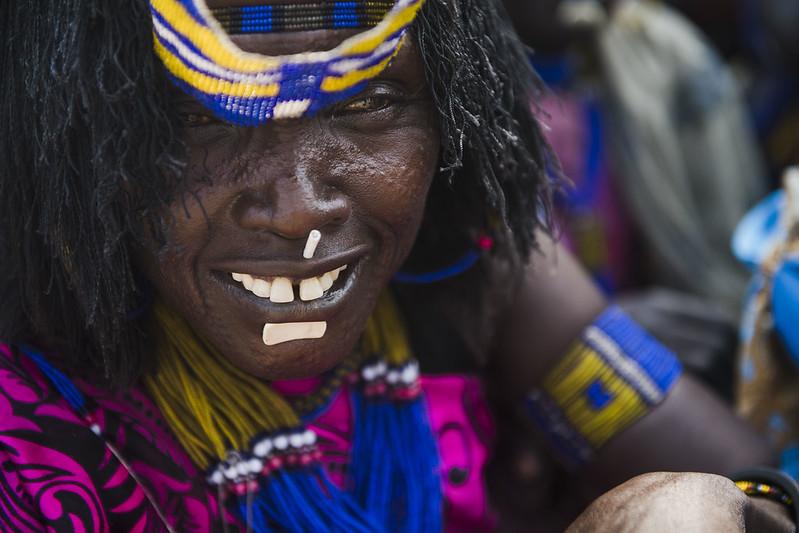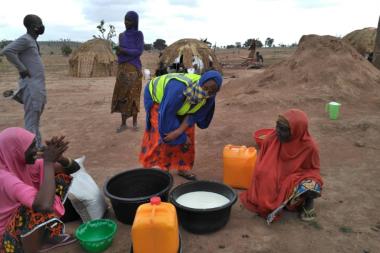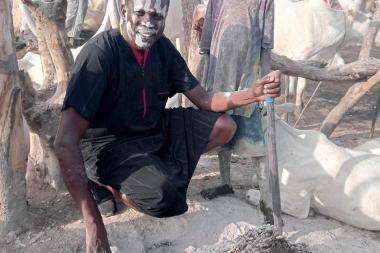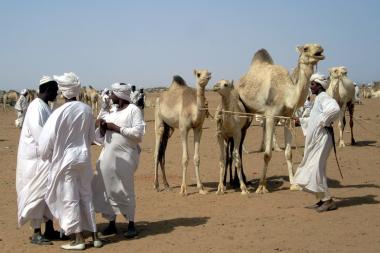Roundtable
LANDac Global Land Governance International Conference
Driving change: more evidence on gender and youth in fragile dryland contexts is key to transforming research on land governance.
Event date and time - 9:00am CEST
SPARC researchers showcased key research on gender and youth in fragile dryland contexts at the annual LANDac Global Land Governance International Conference, which was held from July 2nd to 4th in Utrecht, Netherlands.
The theme of this year’s conference was 'Plurality of Knowledge: The Future of Land Governance in Shifting Glocal Contexts'. SPARC researchers from Nigeria, Sudan and South Sudan drew on key pieces of the programme’s published and upcoming research at an in-person roundtable on ‘Learning from SPARC research on gender and youth issues in farmer-herder conflicts and pastoral land governance’ on Friday, July 4th.
The interactive session was moderated by:
- Dr Elizabeth Daley, SPARC Gender Equity and Social Inclusion (GESI) Advisor
With SPARC speakers including:
- Dr. Pacificah Okemwa, a lecturer at Kenyatta University, Kenya, and Gender Lead in the ‘Building Gender Responsive Climate Resilient Communities (GECRESS)’ project that works with the Dinka people in Bor, Jonglei State, South Sudan’. CEGRESS is funded by SPARC-IDRC as part of its ongoing work on Gender Equity and Social Inclusion in fragile dryland environments. Pacificah presented key findings from the GECRESS research project during the session.
- Prof. Hussein M. Sulieman, a professor at the Centre for Remote Sensing and Geographical Information Systems at the University of Gadarif, Sudan. His research with SPARC focuses on collective land tenure systems in pastoralist regions and the dynamics of farmer-herder conflict. It aims to inform conflict-sensitive land governance and promote sustainable natural resource management. He showcased his research on the ‘Causes and impacts of farmer-herder conflicts through a political economy and food production lens: Case study in Gadarif State, Sudan’.
- Chol Bak, a researcher based at Infinity Consultancy. Chol specialises in research into pastoralism and public health in South Sudan. At the roundtable, he presented part of his research (unpublished) on: ‘How are pastoralists (or agro-pastoralists) adapting to climate change and shifting social dynamics in Warrap State, South Sudan’, with a focus on how agro-pastoralists in Gogrial East County, in Warrap State, are adapting to climate change and conflict.
- Aishatu Bashir Ardo, founding member and a trustee at the Fulbe Development and Cultural Organization (FUDECO), a partner in the SPARC-IDRC project on Gender Equity and Social Inclusion. Aishatu is a lecturer at Taraba State University, Nigeria, and a PhD student in Animal Production Physiology with specialisation in Dairy Production.
With external discussant:
- Barbara Codispoti, an expert in Land and Natural Resource Governance at Oxfam Novib.
Find out more about the conference here, and don't miss this blog about the event.

Pibor, South Sudan
Credit Image by UNMISS - CC BY-NC-ND 2.0


